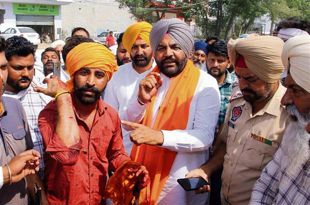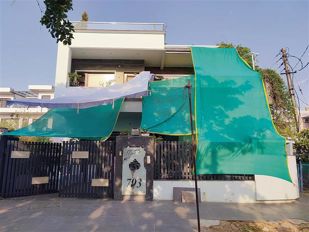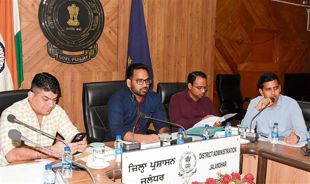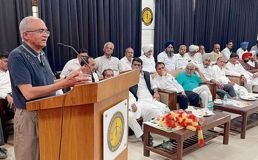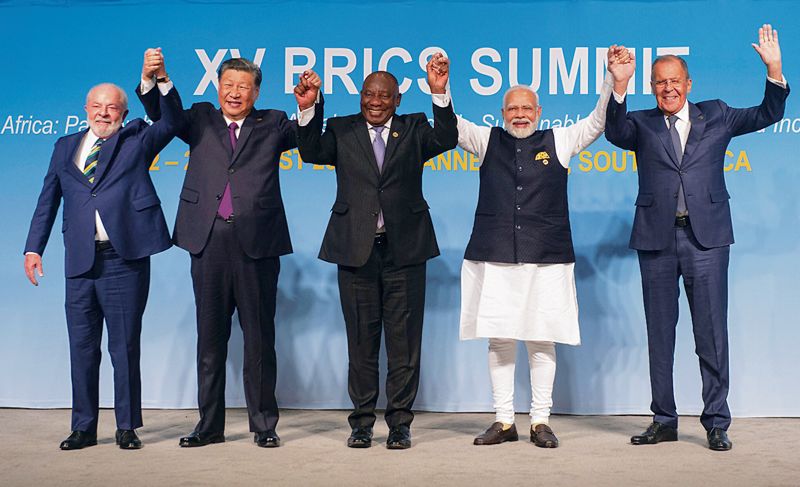
GROUND REALITY: A Global South that is merely a consumer would clearly exclude China. Reuters
TK Arun
Senior Journalist
THE fault, dear Brutus, is not in our stars/But in ourselves, that we are underlings — Indian policymakers would do well to remember these lines while trying to crown India the champion of the Global South.
Recently, Prime Minister Narendra Modi hailed the grouping of Brazil, Russia, India, China and South Africa (BRICS), now including six more countries, as the global platform of the Global South. This vision of the Global South clearly includes China.
At the Business20 meeting in New Delhi last week, External Affairs Minister S Jaishankar called for reglobalisation as the Global South is getting a raw deal in the extant arrangement. He stated that globalisation had rendered the South a mere consumer, while production took place elsewhere. Now, a great deal of global production has been taking place in China and its East Asian and Southeast Asian neighbourhood, through which elaborate supply chains snake their way, doubling back, bending and turning, starting with parts, adding value to parts, and turning them, along the way, into assemblies that end up in China for final manufacture and export to the rest of the world. A Global South that is merely a consumer would clearly exclude China.
China’s absence from the region that Jaishankar alluded to as the Global South was underlined by his reference to how the South suffered during the Covid pandemic. “We cannot be at the mercy any longer of a few suppliers whose viability could come into question by unanticipated shocks. This was starkly apparent when it came to health during the Covid pandemic, but it pretty much applies to everything else as well,” he said.
There is indeed a strong case for India to mobilise developing countries separately from China — indeed, against China — in things like debt restructuring and waiver. Through its Belt and Road Initiative projects, China has saddled several developing countries with debt burdens they cannot service. These need a combination of part forgiveness, rescheduling to lengthen repayment and reduction of interest rates.
However, the description of the Global South as a consuming centre and the demand to reorient trade, technology and investment decisions aimed at the region to overcome underdevelopment are fundamentally misconceived.
Africa and Latin America are huge exporters of minerals and agricultural commodities. When global growth is strong, their exports grow; the largest export destination has been China in the last couple of decades. Farming and mining are activities that add value, and are not acts of consumption. Globalisation has accelerated the production of food and non-food agricultural commodities as well as minerals. Globalisation has, thus, elevated production and related incomes in the Global South.
Yet, there are huge imbalances that make the Global South vulnerable to external economic shocks. To presume that this vulnerability can be addressed by trade and technology and investment from abroad overlooks the intrinsically internal source of the vulnerability.
African countries, for example, depend to a large extent on imports for their food. Africa has lots of land, and this is not being utilised to produce food locally. India can certainly help in this regard. India has gone through the experience of being dependent on food imports to avert starvation. The Green Revolution helped India overcome this humiliating ship-to-mouth dependence.
India can transplant the lessons learned from the Green Revolution, including the harmful effects of overuse of fertilisers and irrigation — essentially due to open-ended subsidies — and overproduction of cereals due to excessive procurement. Africa is slated to experience the fastest and largest population growth among various regions of the world. Depending on imports for that additional population’s calorie and nutrition requirements would create predictable macroeconomic problems. A combination of farm technology, irrigation, government support prices and procurement, along with functional markets for futures, can help Africa reach self-sufficiency in food.
When millions of tonnes of minerals are exported in response to the demand generated by globalisation, if the income that is generated in the process is cornered by a tiny elite, while the majority of the population stays mired in poverty and deprivation, the fault lies with the domestic distribution of power and the resources that build human capital.
India’s own human development indices are illustrative. These show that all sections of society show some improvement in their development parameters, with the tribal groups of the plains showing the least improvement. The Scheduled Castes lag among all groups except the tribal population in human and social development indicators. The minorities come third from the bottom in the development rankings. The OBCs figure above them. The upper castes come out on top.
If members of tribal groups residing around steel plants of public sector SAIL study at SAIL schools and become workers on steel plant shopfloors, some of them even becoming engineers, members of tribal groups that are displaced when mines are opened up on their land — without any scheme for rehabilitation and accommodation — turn dissolute, displaced and often descend into drunkenness and prostitution. Such misery is heaped on these defenceless people not by external forces that demand more iron ore but by domestic failure to politically and socially empower them.
That is the case with the indigenous people whose lands are taken away by illegal logging and mining in the Amazon. The logging and mining do feed global growth. But if this extraction of resources leaves the people who lived on the land worse off, blame not global growth but domestic political failure. Making the project-displaced people partners in the prosperity created on or from their erstwhile land is a question of domestic politics.
The failure to reform internal production relations and create participatory politics cannot be and should not be blamed on globalisation. Before Cassius utters the lines quoted in the opening paragraph, he says: Men at some time are masters of their fates. Blame not globalisation for defective, disempowering domestic politics.
Join Whatsapp Channel of The Tribune for latest updates.






















